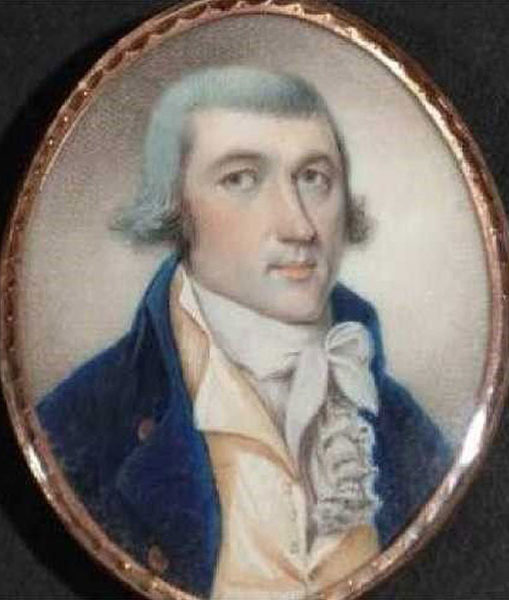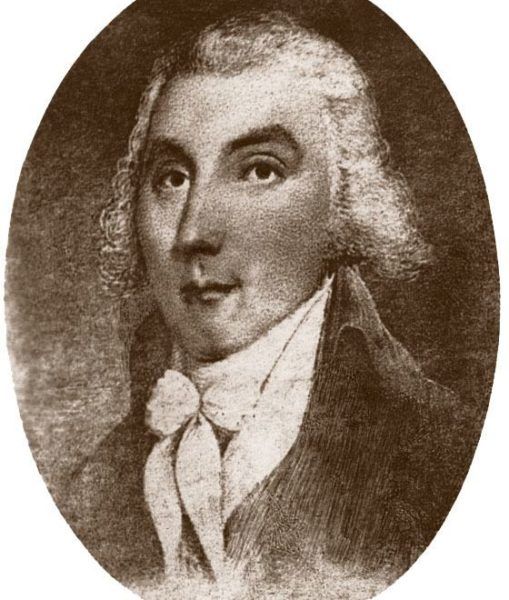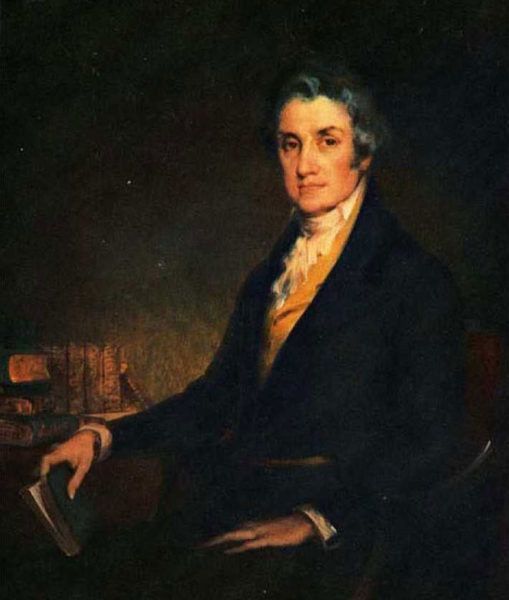April 12, 1756 – December 28, 1829
Early Life
Ebenezer Foote was born April 12, 1756, in Colchester, CT. He was the son of Daniel Foote and the brother of Eli Foote whose daughter Roxana married Rev. Lyman Beecher and was the mother of Henry Ward Beecher, Mrs. Harriet Beecher Stowe, and others of that talented family. Some of the Foote family espoused the loyalist cause in the Revolutionary war; but Ebenezer was an ardent patriot, and when the first guns were fired be, with several other young men, fled from home without his father’s permission and joined the patriotic troops near Boston. He was present with the Minutemen at the battle of Bunker Hill, fought in Trenton, and survived the winter at Valley Forge continuously serving until the close of the war. For his bravery and efficiency he was promoted from the ranks in which he enlisted to the position of Major. He attracted the attention of Washington and was by him assigned to staff duty.
Capture and Escape
He was taken prisoner by the British at the capture of Fort Washington, on York Island, in November, 1776, and was confined with many others in the Bridewell prison in New York city. Along with a number of others he formed a plan to escape. They managed to elude their guards and found themselves in the country near where Chambers Street now is. They made their way to the Hudson river with the intention of crossing it to New Jersey.
They found an old leaky boat, but they were unable to make it sufficiently safe. All the other fugitives then took to the land and tried to make their way through the hostile sentinels to the country north of them. But Foote found a plank and with it undertook to swim the Hudson. It was in the month of December 1777 and the water was piteously cold. He succeeded, however, in escaping the patrolling vessels, and in making his way to the other side. He landed at Hoboken where he found shelter and dry clothes. He escaped, but he never recovered wholly from the effects of this terrible exposure. His patriotism, however, would not allow him to remain an outsider, and we next find him in the Commissary Department at General Washington’s headquarters on the Hudson, where he remained until his health again forced his resignation just before the close of the war. He saw much of Washington; was temporarily on his Staff, and retired with the rank of Major.
On August 3, 1780, the traitor Benedict Arnold assumed command of the garrison at West Point, New York, and began to secretly negotiate its surrender to the British.
On September 4th, Benedict Arnold wrote to Ebenezer Foote ordering him, as inspector of cattle in the Continental Army’s Commissary Department, to move cattle from the countryside to West Point, because, according to this letter, he had “reason to believe the Garrison here will soon be greatly augmented the Demand for Cattle will of Course be greater.” On the surface, it appears that Arnold was attempting to secure adequate supplies for the American troops. However, in hindsight we know that Arnold already planned to turn the garrison over to the British.
Capt Foote, in the early morning of Sept. 22, 1780, for a few moments held the fate of that gallant soldier, Major Andre, in his hands. As officer in command at Crompond in Westchester, New York, Capt. Foote scanned the pass produced by Andre, but knowing Benedict Arnold and his writing well, and seeing that his appended signature was correct, allowed the party to proceed.
Post War
Major Foote, from his rank in the Revolutionary Army, became a member of the Order of Cincinnati, and up to the time of his death took great pleasure in joining his comrades on the fourth of July to celebrate the achievement of American independence. At the close of the war he only possessed the back pay which was due to him for his services. Part of this was paid to him in money; and a part was liquidated by a grant of unsettled land on the West branch of the Delaware river. He entrusted the certificate of his army pay to an agent for collection and was defrauded him out of the whole. He had married in 1779 Jerusha Purdy, a member of the Westchester family of that name. Her property also had been mostly destroyed by the British troops in their incursions into the regions north of New York.
Major Foote had, therefore, to commence life anew. He started in a mercantile career at Newburgh which was then in Ulster county. In this he must have been more or less successful; for we find that several times he was chosen to represent the county in the State Legislature. He is recorded as having been in the Assembly in 1792, 1794, 1796 and 1797. It was during this latter year that the bill for the erection of Delaware county was under discussion, and Major Foote took an active part in perfecting and securing the passage of the measure. He served as Senator from the Middle District during the years 1798-1802. In 1799 he was chosen to serve as a member of the Council of
Appointment under Governor John Jay.
On the establishment of the new county he was appointed by the Governor the county clerk, and immediately removed thither to assume his duties. At this time it must be remembered that there was no village of Delhi. There were two sites which were looked upon as likely to become the location of the proposed county buildings. One of these was at the mouth of Elk Creek on the grounds of Gideon Frisbee. Here already the first meeting of the board of supervisors had been held and the county court had held its first session. The other was the extensive flat at the mouth of the Little Delaware. There is a tradition that some of the early county meetings and courts were held in the latter locality at the house of Mr. Leal. It was near this beautiful intervale that the land lay which had been granted to Major Foote for his military services; and it was near this on the south that he selected a site and built a residence for himself. The building is still standing but has passed out of the possession of his descendants.
No citizen of Delaware has ever enjoyed a more distinguished circle of acquaintance. He knew and corresponded with the most active political managers of the day, and many of them were his guests at Arbor Hill. We may mention a few from whom letters are still preserved by his descendants: The Patroon Stephen Van Rensselaer, Hon. Elisha Williams, Governor Morgan Lewis, General Schuyler, the Livingstons, Cadwallader Colden, Josiah Ogden Hoffman, Philip Van Cortlandt, Martin Van Buren, John Jay, DeWitt Clinton, and Aaron Burr.
He was one of those gentlemen said to be “of the old school” because their bearing and manner were more refined than “modern degeneracy” requires.
Ebenezer Foote and Freemasonry
He was one of the original petitioners and first Master of Steuben Lodge No. 18, the first Masonic lodge in Orange County. On the 4th of June 1788, the minutes of the Grand Lodge of New York received a petition for a warrant to hold a lodge at Newburgh under the name of Steuben. Baron von Steuben was an honorary member of the lodge. During their first meeting, Brother Andrew Billings (also a member of St. John’s No. 2) was asked by the Grand Lodge of New York to attend and ensure they were perfunctory in their work.
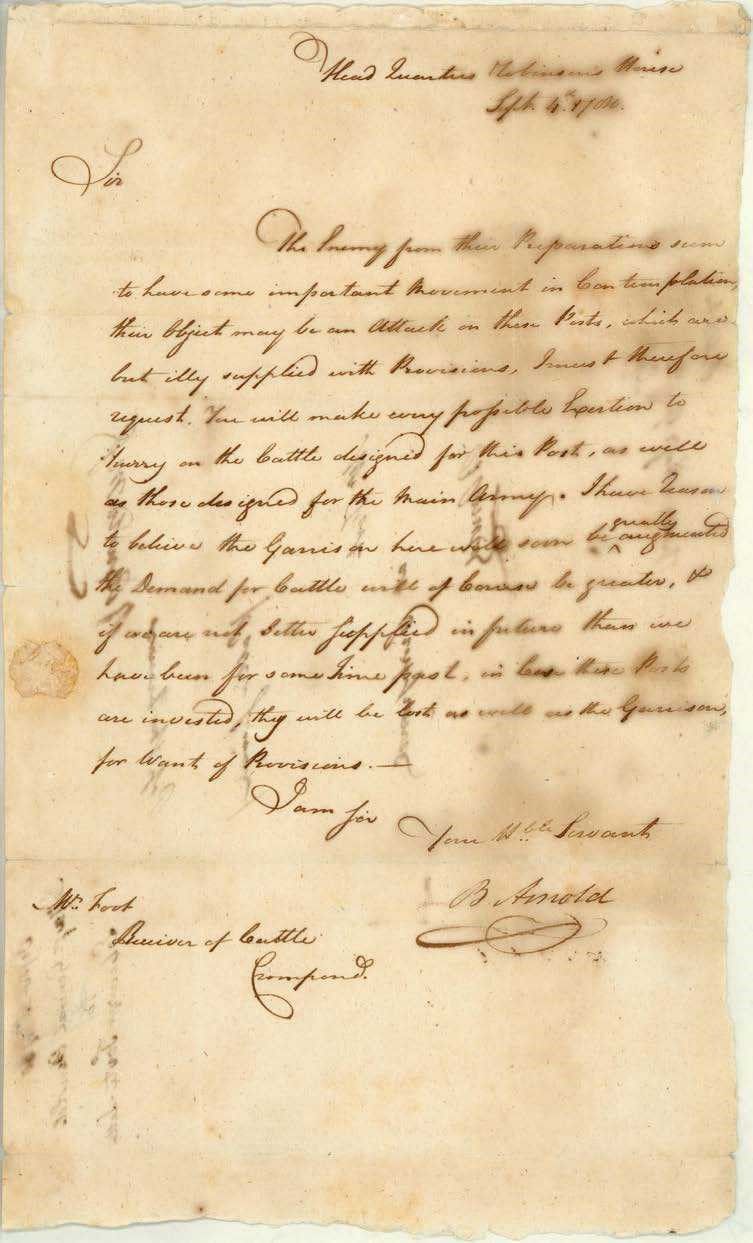
Letter from Benedict Arnold to Ebenezer Foote
From the minutes, “Brother Billings was pleased to favor this body with a learned and well adapted lecture on this occasion, which bespoke the characteristics of a scholar, a gentleman and a sincere brother, after which the Lodge was closed until the first Tuesday after the next full moon: and after spending the remainder of the evening in the utmost harmony and good will, each brother departed for their respective homes, with hearts full of such brotherly love as is only peculiar to true ancient Free and Accepted Masons.”
General Malcom (St. John’s No. 2 member) visited Steuben Lodge No. 18 on September 23rd, 1789, in his capacity as Deputy Grand Master.
Stationed at Fishkill, NY in the Winter of 1779 as Superintendent of Live Stock for the Army. Most likely initiated by St. John’s No. 2 while there given his young age.
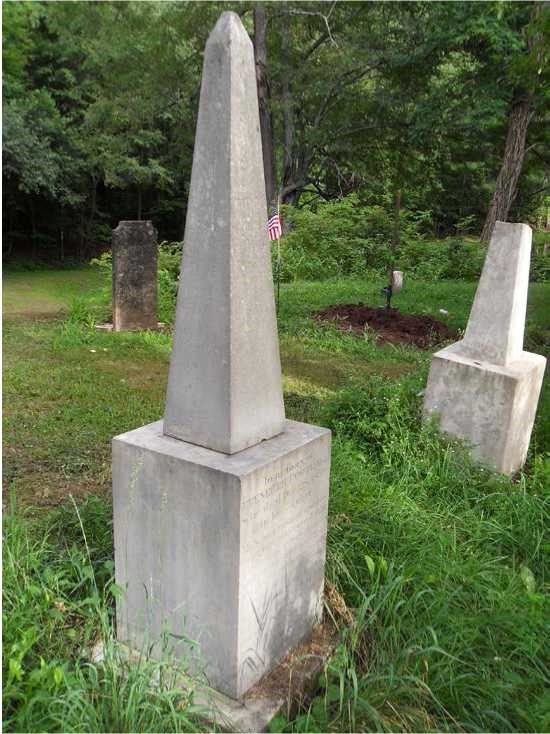
Ebenezer Foote’s Grave Marker
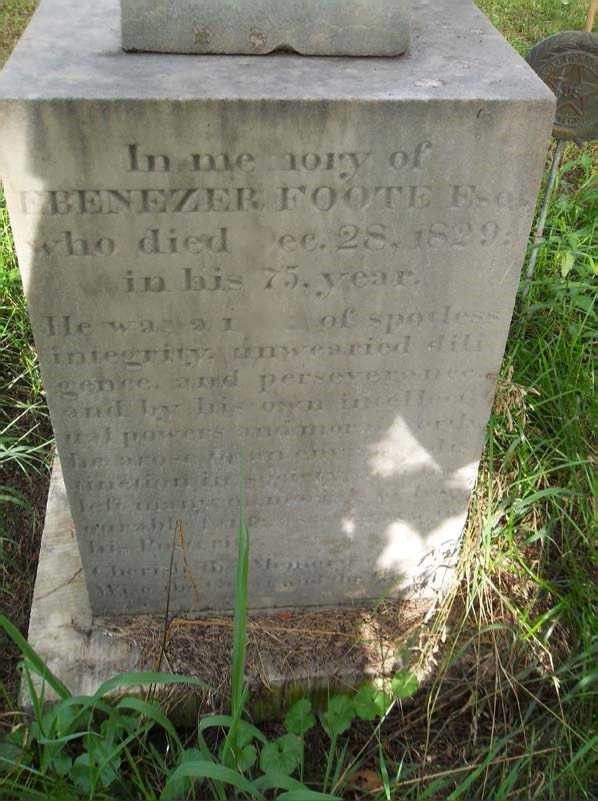
Ebenezer Foote’s Grave Marker
From Ebenezer Foote’s Grave Marker in Foote Family Cemetery, Delaware County, New York:
In memory of Ebenezer Foote, Esq. who died December 28, 1829 in his 75 year. He was a man of spotless integrity, unwearied diligence, and perseverance, and by his own intellectual powers and moral worth, he arose to an enviable distinction in society and has left many memorials of honorable fame as a legacy to his posterity. Cherish the memory of the Wise, the Great, and the Good!
